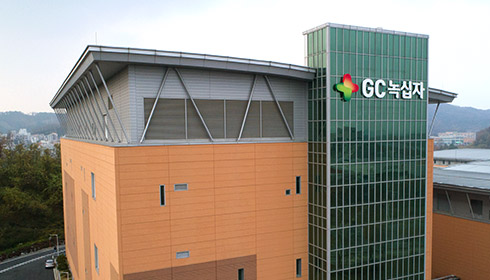Amid recent performance struggles, GC, one of Korea's leading pharmaceutical companies and vaccine makers, has initiated significant steps to restructure its organization and workforce.

According to industry officials, GC has started accepting early retirement program (ERP) applications from employees. Veteran employees with over 20 years of service can receive a full year's salary, while those under 20 years can obtain six months' wages. Last year, the average annual salary per employee was 69 million won ($52,635).
This action is part of a broader restructuring effort to reduce the number of business units by approximately 10 percent. However, the company did not disclose the exact number of expected job cuts.
"We are streamlining our organization to adapt to the global economic downturn,” a GC official told Korea Biomedical Review.
"The ERP has been implemented to resolve the overstaffing issue and to establish a performance-based culture."
While domestic pharmaceutical and biotech firms like Hanmi Pharm and Daewoong Pharmaceutical have reported record-breaking earnings for the third quarter, GC stands out as the only traditional top-tier pharmaceutical company suffering a performance decline.
GC's third-quarter sales and operating profit were 439.4 billion won and 32.8 billion won, down 4.4 percent and 32.8 percent compared to a year earlier.
Cumulative sales and operating profit up to the third quarter also amounted to 1.2 trillion won and 42.8 billion won, down 6 percent and 58.7 percent year-on-year, respectively.
Notably, the cumulative net profit, which was 71.3 billion won until the third quarter of the previous year, has turned into a deficit.
Multiple factors contributed to GC's profitability challenges, including decreased exports of Hunterase, its flagship Hunter syndrome treatment, due to geopolitical tensions, such as the Russia-Ukraine conflict. Delays in obtaining FDA approvals for its immunoglobulin blood product (IVIG-SN) have also hampered sales.
GC's market capitalization has suffered as well. Previously ranking third in market capitalization among traditional pharmaceutical companies, it has been overtaken by Chong Kun Dang and Daewoong Pharmaceutical, valued at 1.6 trillion won and 1.2 trillion won, respectively, whereas GC's market cap now stands at 1.19 trillion won.
As of 10 a.m. Thursday, Chong Kun Dang's stock price stands at 129,800 won, increasing its market cap to 1.6 trillion won, while Daewoong Pharmaceutical's stock price stands at 109,500 won, with a market cap of 1.2 trillion won.
In contrast, GC's stock price stood at 102,600 won, with a market cap of 1.19 trillion won.

